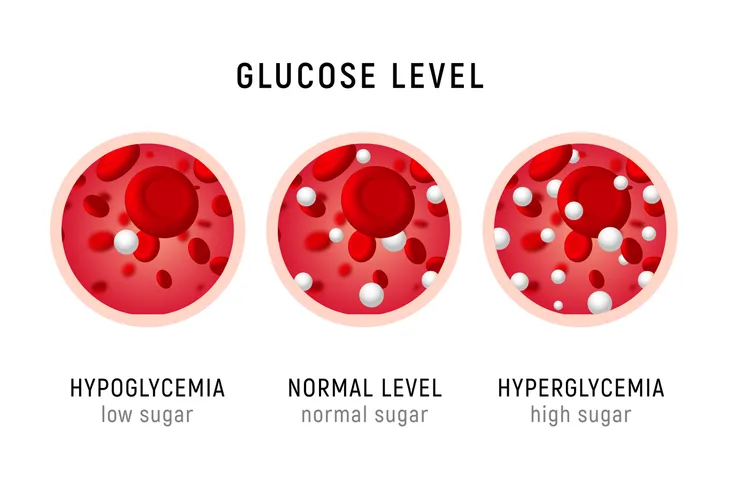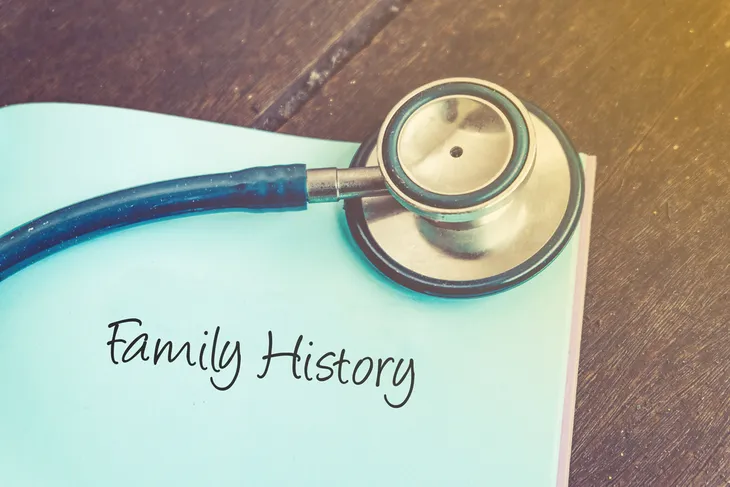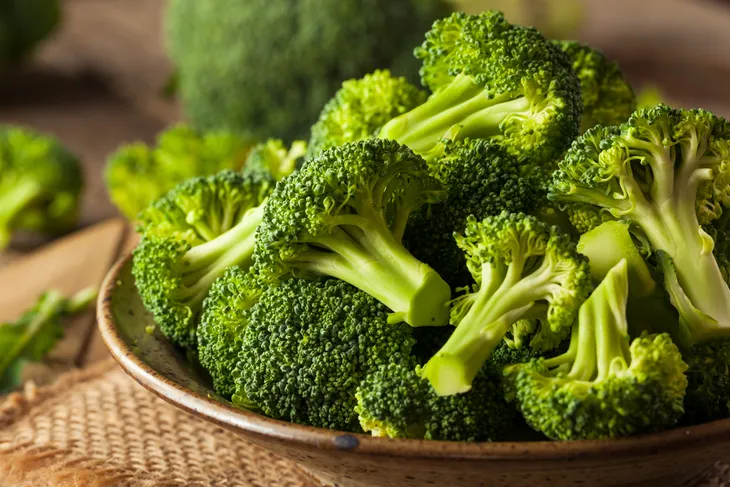If you’re diabetic, you probably already know what hyperglycemia is. In short, it’s high blood sugar (or glucose). It can cause a wide variety of symptoms that we’ll get into later. Luckily, there are some ways to deal with it, including eating the right foods to level your blood sugar out.
However, this article isn’t just for those with diabetes. There is a non-diabetic version of hyperglycemia that has also been shown in people experiencing stress from a serious illness. This condition can be serious which is why understanding it is important. Let’s take a closer look at the signs and what you can do about hyperglycemia.
What Is Hyperglycemia?
We know that it means your blood sugar is too high, often as a result of diabetes, but how high? According to Cleveland Clinic, it refers to a fasting (not eating for at least 8-hours and ideally 12-hours) blood glucose that is higher than 125 mg/dL (milligrams per deciliter). This indicates the body doesn’t have enough of the hormone that regulates blood sugar or isn’t using it properly.
Hyperglycemia can also happen to a person with pre-diabetes. If you have a fasting blood glucose of 100 to 125-mg/dL, you have impaired glucose tolerance (also known as pre-diabetes). Additionally, if your blood glucose is higher than 180-mg/dL an hour or two after consuming a meal, this also would indicate hyperglycemia.
The Signs of Hyperglycemia
It’s especially important to notice the signs of high blood sugar if you have type 1 diabetes. If it’s not dealt with promptly, it can evolve into later symptoms including something much more serious like ketoacidosis. This warrants medical attention.
With that being said, the early signs of hyperglycemia include increased thirst and hunger, blurred vision, frequent urination, and headaches. However, there are other signs that indicate the condition is more serious. Let’s explore these next.
Advanced Signs of Hyperglycemia
There can be other symptoms of high blood sugar including weight loss, fatigue, and skin infections, as well as wounds that don’t heal easily. There are other later signs such as nausea, vomiting, shortness of breath, dry mouth, weakness, and confusion.
Mayo Clinic says if high blood sugar is not dealt with properly, over time, it can lead to a build-up of toxic acids in the bloodstream known as ketoacidosis. This condition carries its own warning signs, such as “fruity-smelling breath,” which happens when the body breaks down fat too quickly and causes blood to become acidic. This can lead to a diabetic coma.
Other Possible Complications
Other than ketoacidosis, Medical News Today mentions complications from prolonged high blood glucose could present as skin problems, such as athlete’s foot and ringworm. There are other diabetic skin complications, such as the rare necrobiosis lipoidica diabeticorum that causes a “painful, scar-like lesion with a violet edge,” notes the source.
Other advanced issues can include eye complications, such as diabetic retinopathy that can lead to loss of vision. There’s also a significantly higher chance of developing glaucoma and cataracts if you have diabetes and high blood pressure. Consistently high blood sugar can also result in nerve damage in the hands and feet (known medically as neuropathy) and affect bodily functions, such as digestion.
What Causes Hyperglycemia?
As we mentioned earlier, hyperglycemia is most often tied to diabetes. In this case, there can be a variety of reasons you’re experiencing high blood sugar, such as the dose of diabetes medication you’re taking is not adequate. It can also be a sign that your body is not effectively using a hormone to control sugar which is common in type 2 diabetes.
Hyperglycemia can also be caused by inactivity (lack of exercise), and physical stress from illness or emotional stress. Certain other medical conditions can lead to hyperglycemia, such as Cushing syndrome and cystic fibrosis. Some medications including steroids can also be a factor.
Risk Factors of Hyperglycemia
The Cleveland Clinic also says there might be some factors that increase your chances of experiencing hyperglycemia. For example, having a family history of type 2 diabetes or a personal history of gestational diabetes (i.e., having diabetes when you’re pregnant) can put you at a greater risk. Being overweight, having high cholesterol, or high blood pressure can also put you at risk.
However, other increased risks listed by the source include being of African American, Native American, Asian American, or Hispanic descent. It also mentions polycystic ovarian syndrome (PCOS), which affects hormone levels in women, can increase the probability of hyperglycemia.
What Treatments Are Available?
Medical News Today says that managing diabetes is “an ongoing and often lifelong requirement,” but adds, there are some ways to get spikes in blood sugar under control. From a medical standpoint, your doctor might recommend trying new medications or changing the timing of them if they’re not working properly.
From a lifestyle perspective, you can try exercise as a way of controlling excess blood glucose. However, it’s worth noting, if ketones are found in the urine, which can lead to ketoacidosis, you should actually avoid exercise as it can make the condition worse. Finally, managing stress and making dietary changes may help too.
Foods That Help Lower Blood Sugar
When it comes to foods that help regulate blood sugar, you have a pretty wide range to choose from. Healthline shares quite a few of these foods, including broccoli, nuts, beans, certain seeds (chia, flax, and pumpkin), and some fermented foods (kimchi, kefir, and sauerkraut). It also lists avocado, kale, and citrus fruits (oranges and grapefruits) as positive forces.
It’s worth noting there are some foods that you should avoid that can cause blood sugar spikes. They include white bread, pasta, soda, fast foods, and anything high in saturated fats such as bacon. You should also avoid foods that can increase cholesterol, such as red meat and full-fat dairy.











